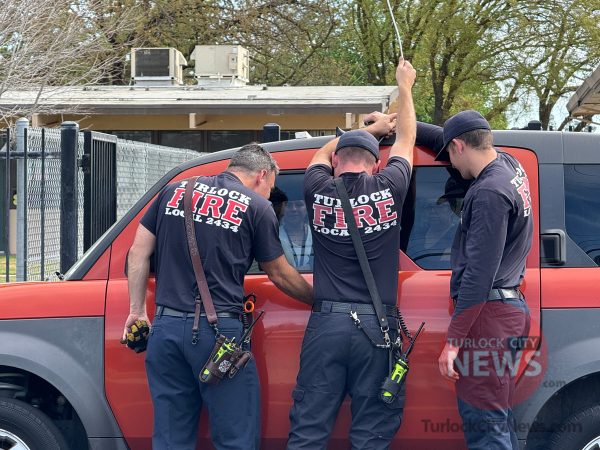The City of Turlock may soon ban food trucks from operating in the heart of downtown, putting an end to the fast-growing trend of mobile food vendors.
The ban would bar any new food trucks from opening in Turlock's downtown core and surrounding districts. The two existing food trucks in the area – Vida Vital, a smoothie and wrap truck, and Saucy Girls, specializing in sliders and hot dogs – would be forced to move by Jan. 1, 2015.
Both of the new food trucks opened on West Main Street in the past year.
But those openings weren't without controversy. The Turlock Downtown Property Owners Association voiced their concern with the food trucks and lobbied the Turlock City Council to temporarily halt any new food trucks from opening.
“They do a substantial impact to the local restaurant business, and that is obvious, I do believe,” said Joel Carter, a retired City of Turlock Building Inspector.
Now, the City of Turlock is set to permanently ban food trucks from Downtown Turlock as part of a massive zoning ordinance update, which would effectively replace Turlock's existing zoning ordinance wholesale. The zoning ordinance update will also include long-awaited revisions to sign and noise ordinances, as well as new rules governing cargo containers, accessory structures, water efficient landscaping, and electrified fences.
The food truck change, though, has taken center stage in a battle between longstanding downtown businesses and a new era of entrepreneurs.
“It's a hot topic, so someone's talking about it,” said Turlock Planning Commissioner Nick Hackler.
The trucks hurt downtown businesses in several ways, detractors say.
Food truck vendors don't have to meet the same stringent – and costly – building codes and laws that brick-and-mortar businesses do, putting restaurants at a competitive advantage. That lets food trucks offer lower prices, stealing business from restaurants.
“There are very, very few requirements to be a mobile food vendor,” Carter said. “… We have the least requirements of maybe any city in the valley.”
And food trucks don't pay the Turlock Downtown Property Owners Association tax assessment. All brick-and-mortar businesses pay 42 cents per square foot to fund downtown programs. As the food trucks operate on vacant lots without permanent buildings, the food trucks can enjoy the benefits of being in downtown without paying the costs.
The aesthetics of food trucks can also be undesirable to some business owners, and not in keeping with Downtown Turlock's style. That may discourage some from visiting Downtown Turlock, but others are attracted to food trucks which have become hip landmarks of major U.S. cities.
Food truck owners admit they enjoy some competitive advantages, but note disadvantages as well. Food trucks must move daily, visit a commissary for cleaning and food prep, and incur costs related to fuel and off-site food storage that brick-and-mortar restaurants do not. And food trucks have neither a permanent physical location nor indoor dining, making it more difficult to attract customers – especially on a rainy day.
Supporters note that the food trucks create local jobs, from those on the truck to commissary employees and even truck maintenance personnel. And it's better to put the vacant lots where food trucks are parking to some business use, supporters say.
“I'd rather have the spirit of commerce than empty lots,” Peterson said.
The new ban wouldn't affect so-called “itinerant vendors,” like the Cupcake Lady truck. Food trucks would still be allowed to move from place to place, but could spend no more than 30 minutes in any one location before moving.
The zoning ordinance overhaul will return to the Turlock Planning Commission for an expected vote on Feb. 6. The ordinance change would then advance to the Turlock City Council for a final vote.







